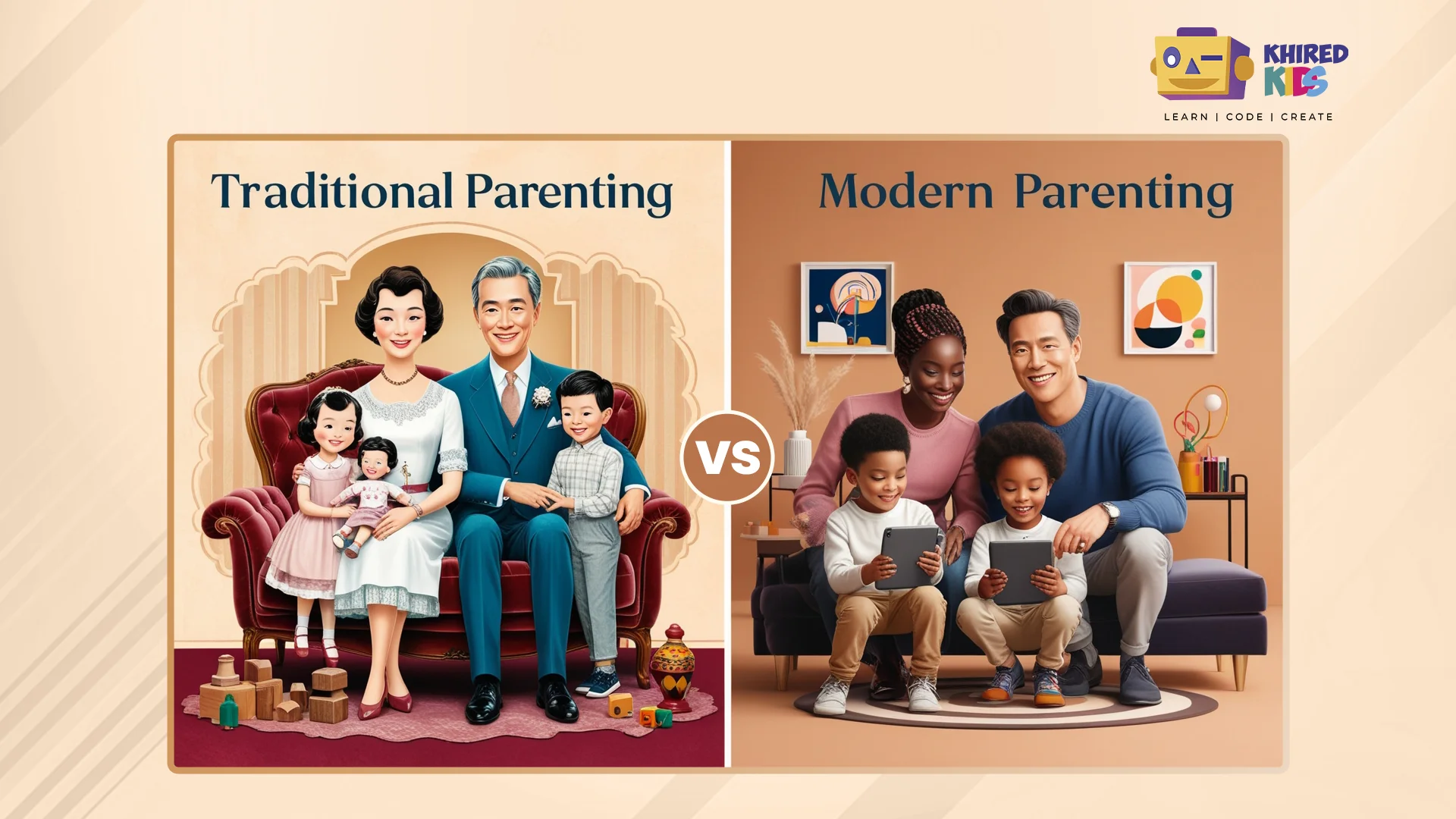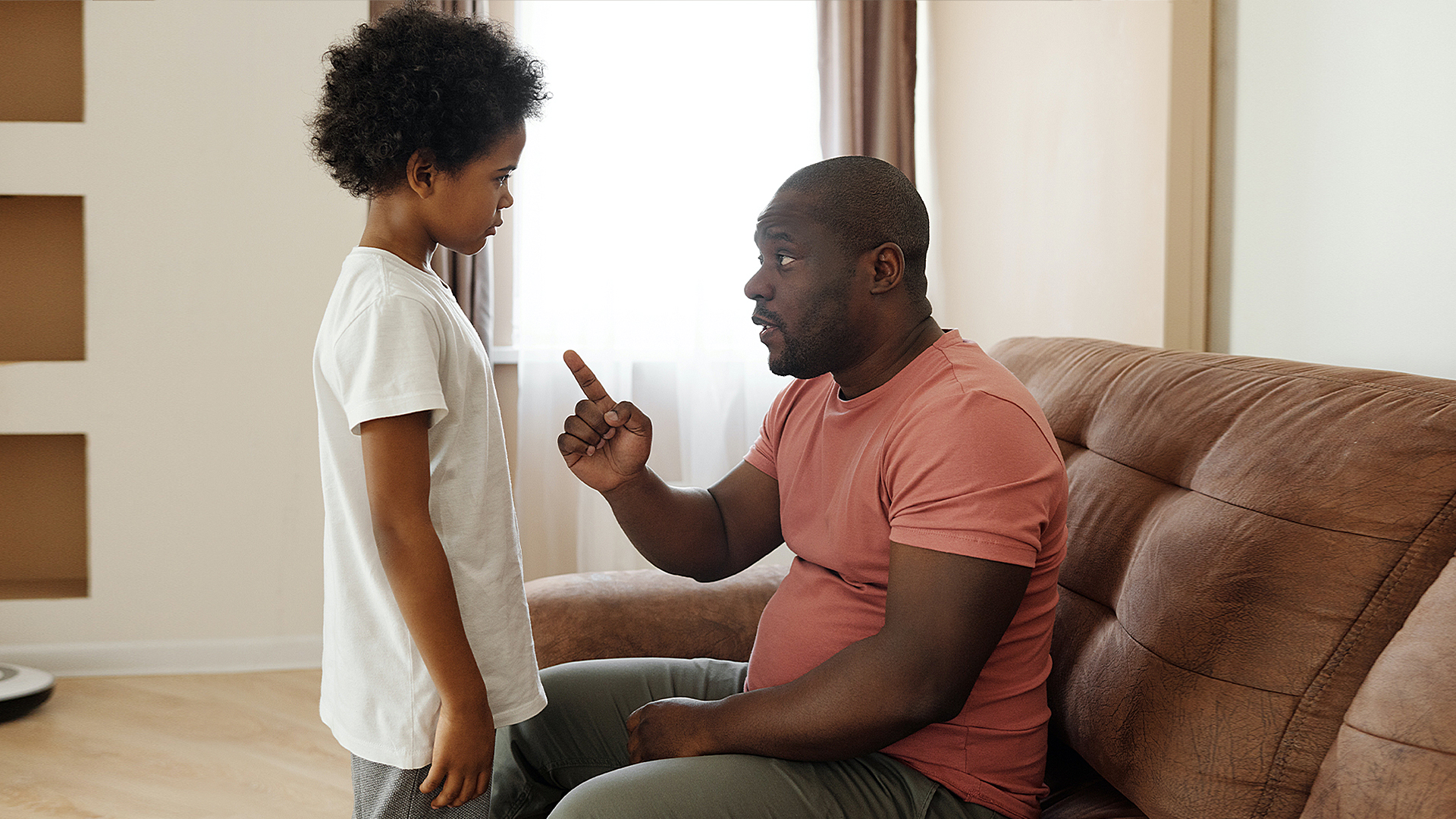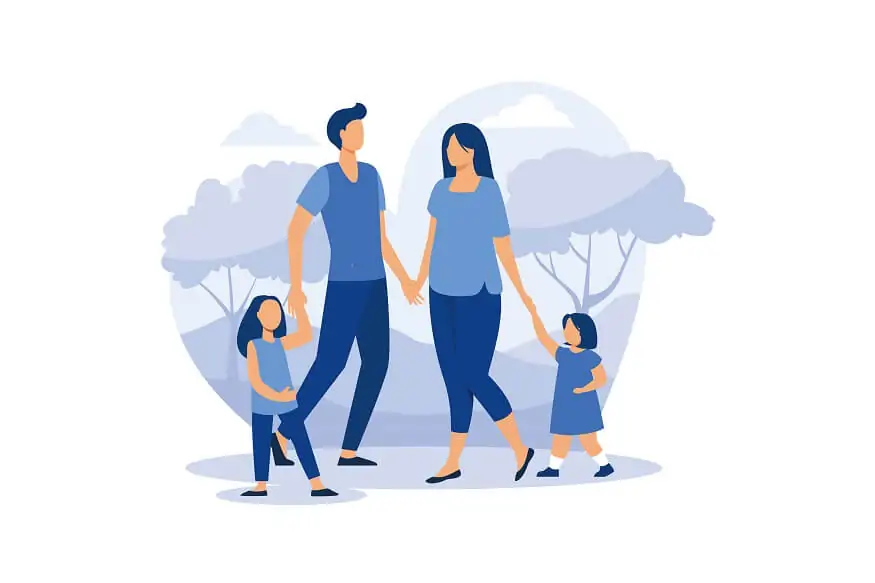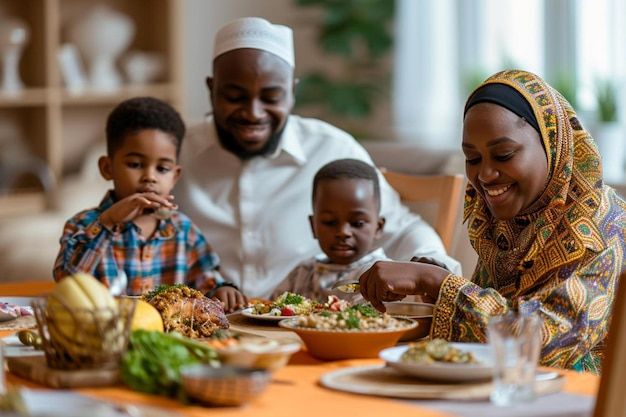Modern Parenting in an African Home: Between Tradition, Technology, and Love

Introduction
There was a time not so far back when the word of an African parent was law, no questions, no negotiations, no “why.” A look, a tone, or even the clearing of the throat was enough to send a child running to obedience. But fast-forward to today, and there is a quiet revolution that is reshaping many African homes. Smartphones beep during family meetings, children have voices in decisions, and parenting, once a model of strict hierarchy, is now a dance between tradition, technology, and tenderness.
The African home, once grounded in communal upbringing and rigid discipline, is confronting its biggest generational shift. For the first time, many parents are raising children in a digital world they themselves did not grow up in. And somewhere between the echo of ancestral authority and the rhythm of modern freedom, the question emerges: What does it mean to raise a child in Africa today?
The Legacy of Discipline: Raised with Fear, Not Freedom
For many Africans, memories of childhood discipline are laced with both nostalgia and pain. The old system of parenting was built on obedience and respect, often enforced through fear. The phrase “Spare the rod and spoil the child” wasn’t just a saying, it was a guiding philosophy that was upheld without any room of pity or compromise.
Parents were not to be questioned, not even by body gestures from their children. This authority stemmed from tradition, from the belief that children were extensions of the family name, to be monitored with utmost caution and children were fully given the rights to be individuals with their own desires. Conversations about emotions, mental health, or personal boundaries were rare. A mistake was often met with a cane and severe punishment, not a conversation.

Yet, for all its harshness, this model produced resilience. Many older Africans attribute their success, discipline, and moral compass to the “tough love” they received while they were growing up. But beneath that strength, others recall scars, emotional, psychological, and in some cases, physical. Suppressed voices, unspoken trauma, and fear-based respect became part of adulthood for many that are now finding it difficult to express themselves as they have grown.
Now, as the generation that were raised strictly and given the path they should follow, grows up to become parents, they face a dilemma: Should they replicate what raised them or reject it entirely?
The New Age Parent: Freedom Meets Uncertainty
Today’s African parents are more informed, more exposed, and often more conflicted. The rise of technology, social media, and global awareness has opened new parenting styles that emphasize empathy, emotional intelligence, and individuality. Many parents are deliberately avoiding the authoritarian approach they grew up with.
Instead of commanding, they now explain. Instead of punishing, they reason. Instead of demanding respect, they try to earn it.
But it is quite concerning that this newfound freedom has its own risks.Too much leniency can blur boundaries. A child raised with too much voice may struggle with authority outside the home, in schools, workplaces, or society at large. In some cases, children mistake freedom for friendship and become too familiar with their elders, losing the structure that once grounded family relationships.
So while modern parenting promises emotional connection, does it also pose the danger of entitlement and too much leniency in raising children in this age? The balance is fragile — how do you raise confident children without losing control?
Technology: The New Third Parent
If African tradition shaped parenting’s past, technology is shaping its future. This digital age has introduced a new, often invisible, member to the family, the internet. Children now learn as much from YouTube and TikTok more than they might actually learn from school or home. The result? Parents are no longer the sole teachers.
While this offers access to global knowledge and opportunities, it also brings confusion and conflict. The digital world exposes children to values, ideologies, and lifestyles that may clash with their family’s cultural beliefs. Conversations around gender identity, mental health, or independence arise earlier and parents often feel unprepared, coupled with the fact that matters regarding sex, autonomy and finance are treated as sacred in many African homes, many of these kids have full access to different ideologies with just a click away.
In many homes, screens have replaced stories and family night time. Family meals are now quiet scrolls through timelines. The very bond that once defined African parenting, strict connection is being tested by digital distraction.
Yet, technology also gives parents tools that their own never had. Online resources, digital parenting communities, and child development apps are helping many navigate the complexities of modern childrearing.
It’s not just a curse, it’s a new kind of connection. The challenge is not whether to embrace technology, but how to use it without losing the warmth of home.
Gender Roles and the Evolving African Family
Traditional African parenting often followed defined gender lines: fathers were disciplinarians, mothers nurturers. A father’s word was final, a mother’s duty was emotional labor, sometimes even silence.
But modern reality is rewriting the script. Economic pressure and social evolution have turned parenting into a partnership. Fathers are now learning to show affection and be emotionally present; mothers are demanding shared responsibility and personal growth beyond domestic life.

In many urban centers across Africa, young fathers are changing diapers, attending school plays, and taking paternity leave, acts that would once have been ridiculed as “un-African.” and still being ridiculed by some folks. Meanwhile, mothers are increasingly career-driven, balancing the dual roles of nurturer and provider.
This redefinition of roles is not without conflict. Older generations view it as erosion of culture, while younger ones see it as evolution. But perhaps it’s not about abandoning tradition, it’s about expanding it to fit a changing world.
While all of this is welcoming, does this actually disconnect parents from their kids?
The Emotional Gap: Where Love Meets Silence
Even as parenting evolves, many African families still struggle to talk openly about emotions. Generations of parents were taught to show love through provision, not affection. “I feed you, I clothe you, what more love do you want?” became a common refrain.
But children of today, raised in a world that values emotional literacy, crave more, validation, understanding, conversation. They want to be seen and heard, not just raised. The challenge for many parents is learning to express love in ways that go beyond survival.
Psychologists across Africa note a rise in mental health challenges among teenagers and young adults, many rooted in communication gaps at home. The shift from authoritarian to emotionally aware parenting is not just about methods, it’s about healing generational silence.
Love, after all, is not weakness. It is the new strength.
When Culture Clashes with Modern Realities
The debate around parenting in Africa is not just generational, it is deeply cultural. Rural and urban families often operate under different social pressures. In traditional settings, communal parenting still thrives, neighbors and elders correct children collectively. In cities, nuclear families dominate, and parenting is more individualized.
Religious beliefs also shape parenting styles. Some parents blend Christian or Islamic teachings with traditional authority, creating hybrid systems that are at once progressive and conservative. Others face tension when modern child rights laws clash with cultural norms of discipline.
The big question remains: Can African parents preserve their heritage while adapting to global ideals?
Perhaps the goal isn’t to choose one or the other, but to create a third path, where culture informs love, and love humanizes culture.
The Cost of Extremes And The Solution
Both parenting extremes, excessive strictness and excessive freedom, carry risks. Children raised under fear may grow obedient but emotionally distant. Those raised with unchecked freedom may grow expressive but undisciplined.
The key is balance, a word that sits at the core of African philosophy itself. Character is built at home before it is shown to the world. Modern parenting must rediscover that truth, reworking it for the realities of today. Parents must become both guardians and guides, firm enough to protect, flexible enough to listen.
So just for a moment think about it, if modern African parenting isn’t about choosing between the past and the present, but creating a bridge between both? What if discipline and dialogue can coexist? That bridge begins with language. It’s time to replace fear with respect,obedience with understanding, and control with connection. Children should grow not just into success stories, but into whole humans, emotionally stable, culturally grounded, and socially aware.
Parenting, at its essence, is an act of hope, hope that tomorrow’s world will be kinder, wiser, and freer than today’s. And that hope must begin at home.
Raising a New Generation of Hearts

The African home is changing and perhaps, for the better. The cane should give way to conversations that are laced with mutual understanding, commands should evolve into compassion, and the old fear to newfound understanding. But as freedom rises, discipline must not disappear.
A modern parent must carry the wisdom of the ancestors in one hand and the awareness of the modern world in the other.
Because the ultimate goal is not to raise obedient children, it is to raise balanced humans.
And maybe that’s what modern parenting in Africa really means:
Not rejecting tradition, not copying the West—but redefining love in our own language.
Recommended Articles
There are no posts under this category.You may also like...
Bundesliga's New Nigerian Star Shines: Ogundu's Explosive Augsburg Debut!

Nigerian players experienced a weekend of mixed results in the German Bundesliga's 23rd match day. Uchenna Ogundu enjoye...
Capello Unleashes Juventus' Secret Weapon Against Osimhen in UCL Showdown!

Juventus faces an uphill battle against Galatasaray in the UEFA Champions League Round of 16 second leg, needing to over...
Berlinale Shocker: 'Yellow Letters' Takes Golden Bear, 'AnyMart' Director Debuts!

The Berlin Film Festival honored
Shocking Trend: Sudan's 'Lion Cubs' – Child Soldiers Going Viral on TikTok

A joint investigation reveals that child soldiers, dubbed 'lion cubs,' have become viral sensations on TikTok and other ...
Gregory Maqoma's 'Genesis': A Powerful Artistic Call for Healing in South Africa

Gregory Maqoma's new dance-opera, "Genesis: The Beginning and End of Time," has premiered in Cape Town, offering a capti...
Massive Rivian 2026.03 Update Boosts R1 Performance and Utility!

Rivian's latest software update, 2026.03, brings substantial enhancements to its R1S SUV and R1T pickup, broadening perf...
Bitcoin's Dire 29% Drop: VanEck Signals Seller Exhaustion Amid Market Carnage!

Bitcoin has suffered a sharp 29% price drop, but a VanEck report suggests seller exhaustion and a potential market botto...
Crypto Titans Shake-Up: Ripple & Deutsche Bank Partner, XRP Dips, CZ's UAE Bitcoin Mining Role Revealed!

Deutsche Bank is set to adopt Ripple's technology for faster, cheaper cross-border payments, marking a significant insti...
